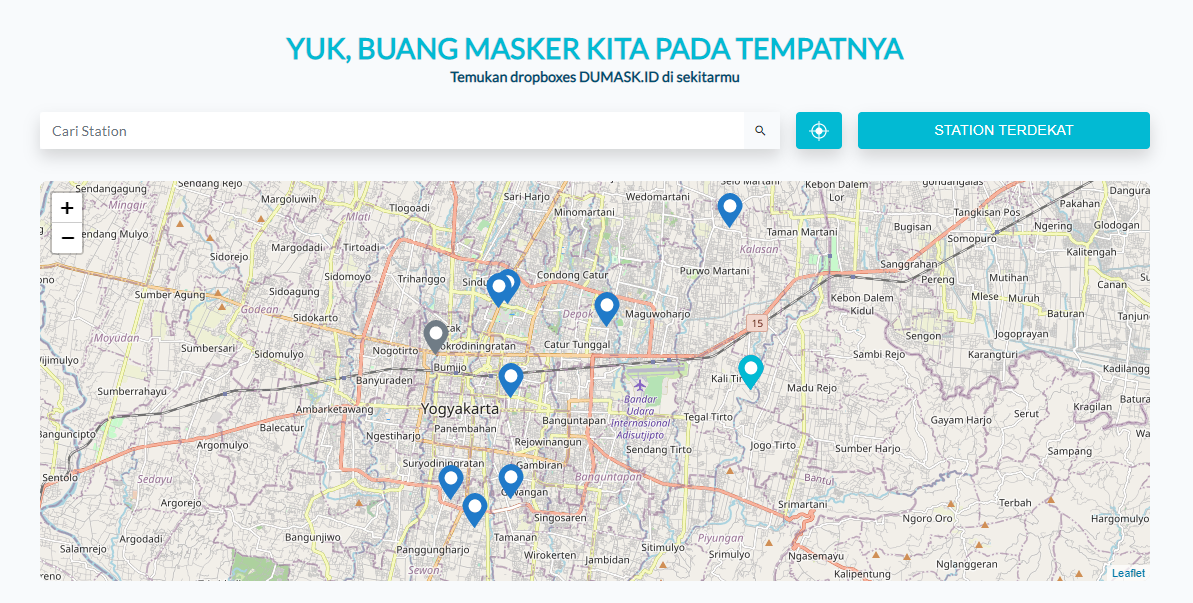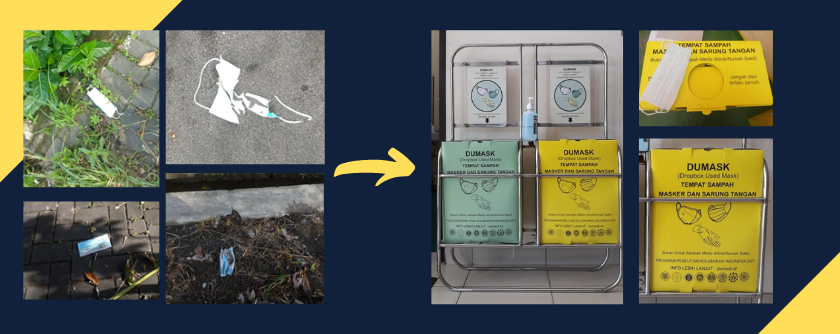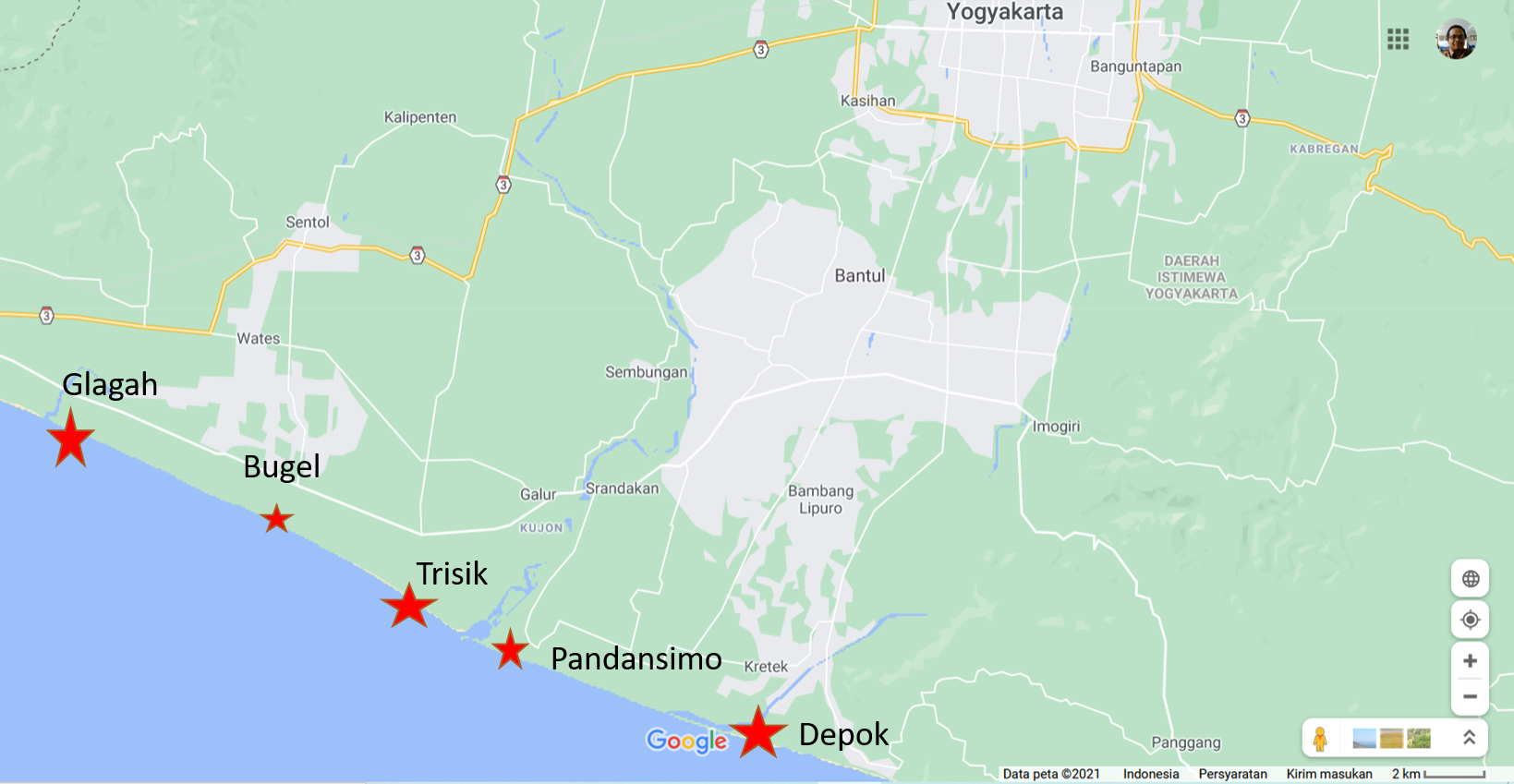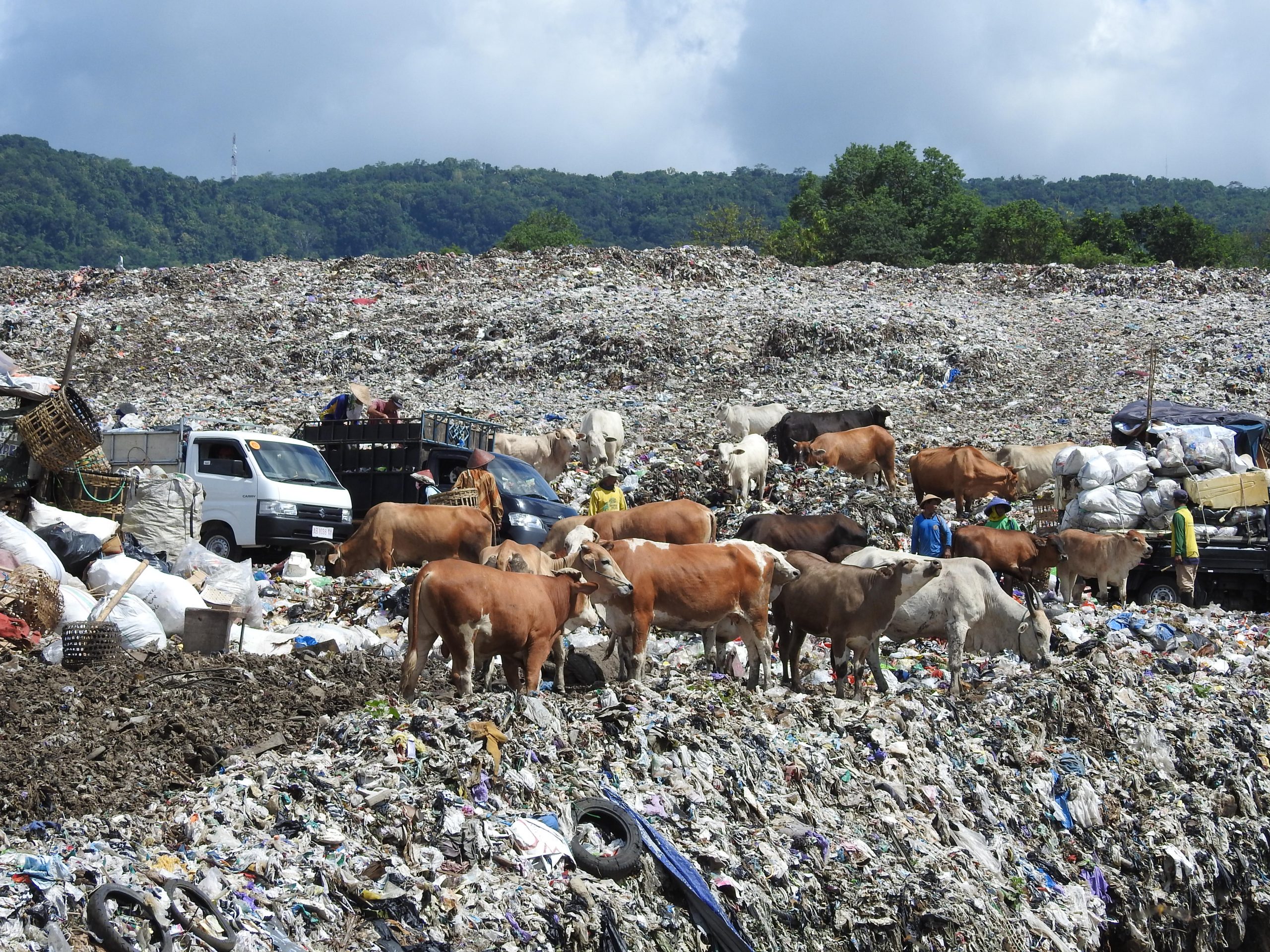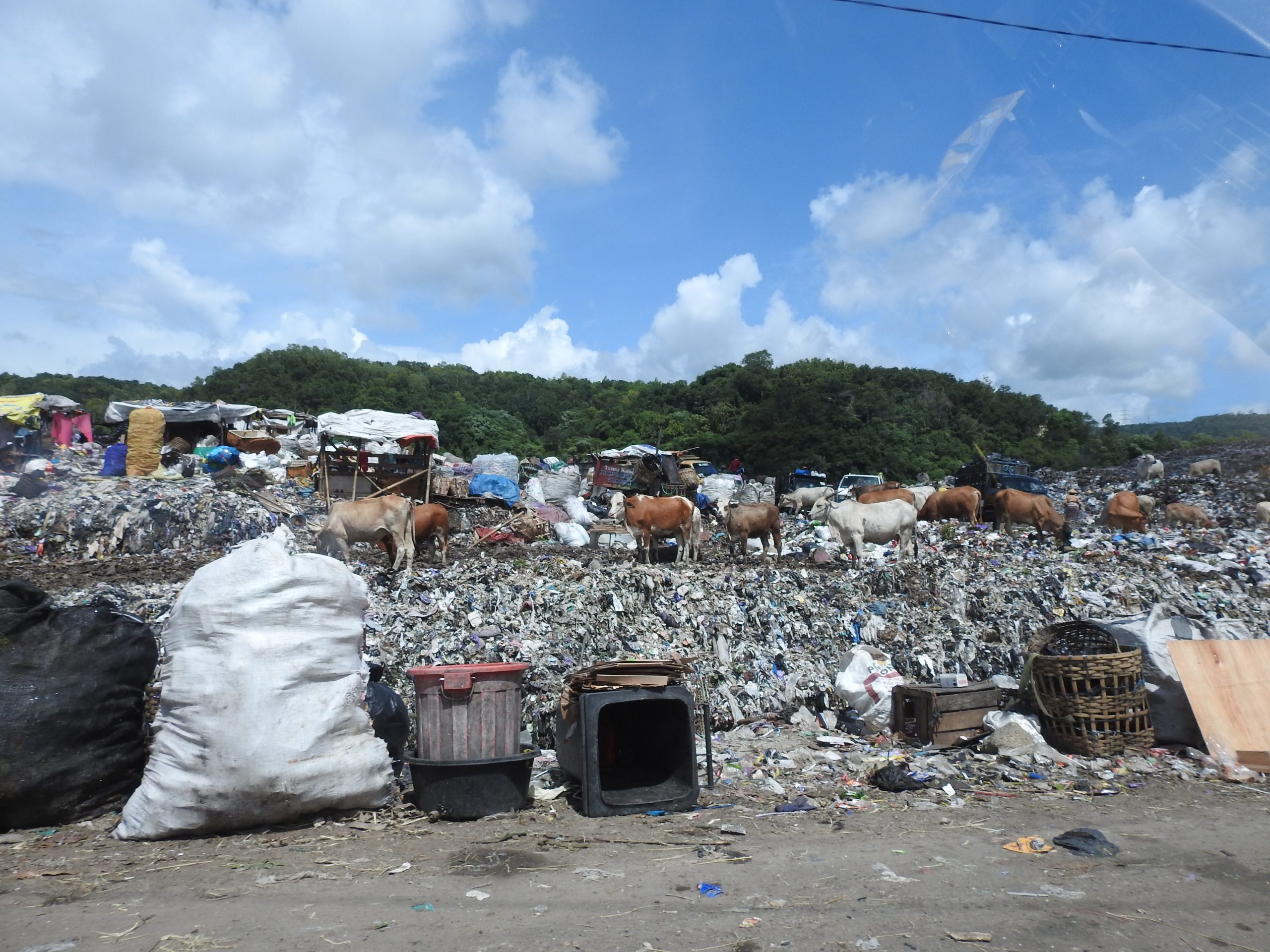PROJECT
DUMASK (Drop Box Used Mask)
- The Covid-19 pandemic contributed to an increase in waste production, including disposable masks and gloves. This waste potentially can cause other respiratory diseases transmission if disposed carelessly. This type of waste also has the potential to be thrown into the waters and disrupt the health of the environment. RRWM PIAT UGM develop Drop Box Used Mask or Dumask to dispose used masks and gloves, in collaboration with Universitas Janabadra, Universitas Negeri Sebelas Maret, Universitas Ahmad Dahlan, Universitas Proklamasi 45, Politeknik ATK Yogyakarta, Universitas Airlangga, and Institut Teknologi Bandung. Dumask locations can be accessed through this link: dumask.id.
- The mask and glove waste inside dumask will then be processed by pyrolysis and incineration.
[sangar-slider id=5319]
Recycling Debris on Estuary Coastal Area using Modular Pyrolyzer (REDCAMP) (in Proposal)
Humans produce about 100 million tons of plastic every year and 10% of this waste is dumped into the oceans. It is currently estimated that an area of 15 million km2 in the ocean is covered by debris carried by ocean currents. Indonesia is the second largest contributor of marine debris in the world. Based on a survey that has been carried out in two districts in Yogyakarta, namely Bantul (Depok Beach, Pandansimo Beach), and Kulonprogo (Trisik Beach, Bugel Beach, Glagah Beach), every rainy season the beaches in the two districts are filled with garbage entering through the estuary of Opak River and Progo River. The waste found included woods, twigs, bamboo, coconut, styrofoams, plastics, single use lighter, sandals, shoes, pampers, drug bottles, sanitary napkins, and many more.
The existence of this waste affects environmental health, disturbs animal habitats, and reduces the attractiveness of existing beach tourism. For this reason, the Recycling Debris on Estuary Coastal Area using Modular Pyrolyzer (REDCAMP) program was implemented.
Sampling in a Single Bag
Toothpaste tube, Styrofoam, Bottles, Diapers, Twigs, Sandals, Straw, Single use lighter, Coconut Seeds, and Bulb
[sangar-slider id=5329]Magelang Municipal Solid Waste Masterplan Project
Magelang Municipal Solid Waste Master Plan Project is implemented to help the Magelang City Government overcome waste problems. This activity was carried out by PIAT UGM in 2017 by conducting a feasibility study on waste management in the City of Magelang. Magelang City has no landfill in its own area. The landfill is located outside the area, namely Banyuurip Village, Tegalrejo District, Magelang Regency. This landfill will be closed while in the Magelang City there is no longer available land to be used as a TPA. Therefore, good waste management in all elements is needed to reduce the volume of waste produced.
[sangar-slider id=5312]
Waste Management Masteplan of Kota Yogyakarta
Kota Yogyakarta as the capital of the Special Region of Yogyakarta is inseparable from the waste problem. Based on 2020 data, the waste production in Kota Yogyakarta reached 360.79 tons / day. This makes Kota Yogyakarta as the biggest waste contributor for the Piyungan Regional Landfill. By 2025, Kota Yogyakarta has to achieve 70% waste management and 30% waste reduction. To pursue that target of reducing waste, it is necessary to develop a comprehensive waste management master plan. The master plan was prepared by RRWM PIAT UGM. This waste management master plan is expected to improve the long-term performance of the waste management system in Kota Yogyakarta.
Feasibility Study of Refuse Derived Fuel Kabupaten Cilacap, Jawa Tengah
One of the waste management technologies that are considered quite prospective for application in Indonesia is Refuse Derived Fuel (RDF). RDF is a fuel produced from waste processing including residues from urban waste recycling, industrial and commercial waste, and other waste according to predetermined industrial specifications to achieve high calorific values.
RDF is obtained from waste management which goes through several processing stages including sorting, size reduction, screening, mixing, drying and pelleting, packaging and storage. The facilities for the RDF manufacture require high investment and operational costs so that it requires cooperation of many parties.
RDF is very strategically used by industry to reduce coal use. One industry that is concerned about using RDF is PT Solusi Bangun Indonesia (PT SBI), which is located in Cilacap Regency. Therefore, PT SBI collaborated with PIAT UGM to prepare a feasibility study for RDF from waste produced in Cilacap Regency. Utilizing waste into RDF is expected to reduce the amount of waste buried in the landfill.

